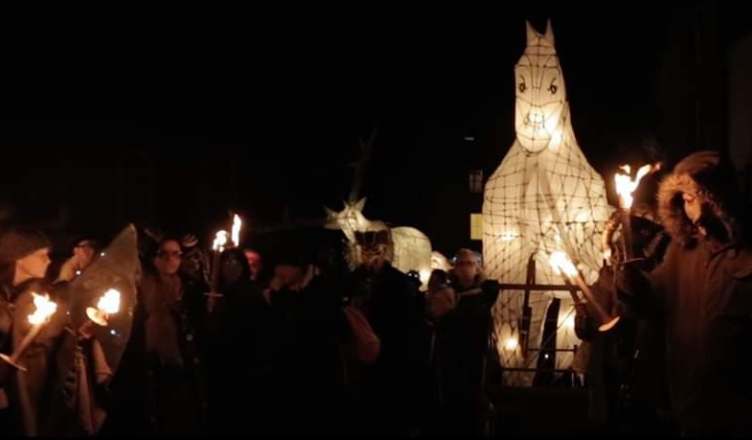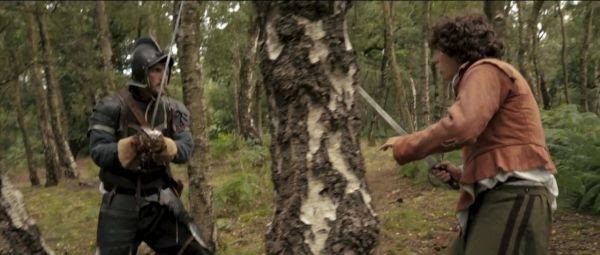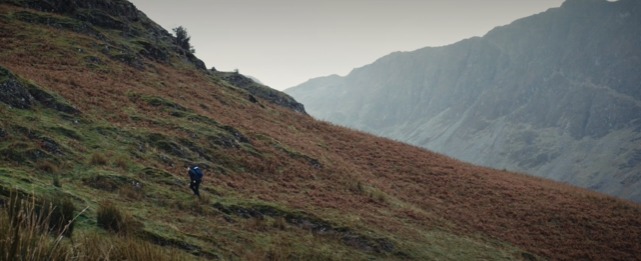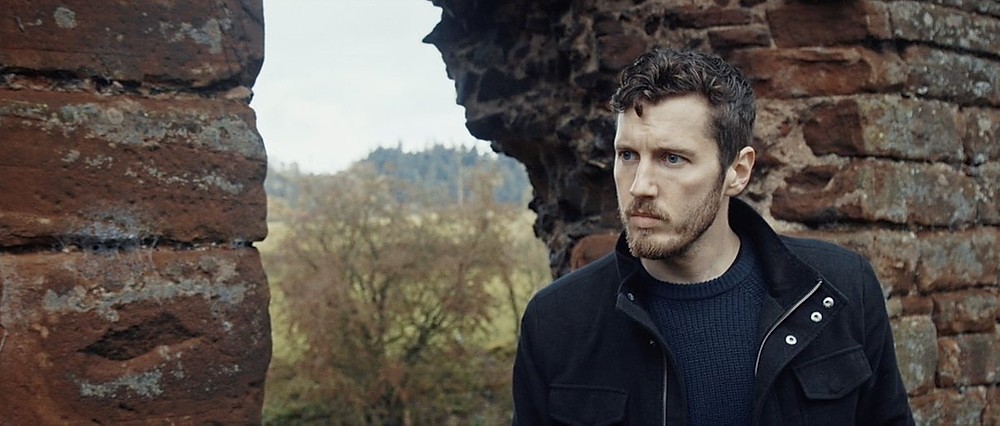
Having added The Droving (2020) as one of my favourite films of the year, it was great to catch up with Droving director George Popov for a chat about his career to date, priorities, future plans and the importance of working together to support film in these troubled times…
WP – So you have made two feature films to date: Hex (2017), which you co-directed, and The Droving (2020), which you wrote and directed yourself. Your career doesn’t seem to have followed the usual pattern of working in supporting roles, then maybe making some short films etc. Tell us about how you came to filmmaking.
Well there’s a lot of career paths that can be taken when you want to become a filmmaker. I mean, I’ve been interested in being a director for a long time. And I think, mainly, because a lot of my interest came from different arts. My father is a painter, my grandfather was a theatre director, my mother is an actress. As a kid, I understood that I needed to pursue the one role which combined all these different little passions that I had; eventually it became clear to me. The more I did my own writing and wrote stories, to be told in a specific fashion the way I wanted them to be, it became clear that the role of director was one I had to take. I decided to go the film school: I was itching to tell some stories, and I just really wanted to see how people – just general audiences and critics – will react to these stories in different ways. Short films are definitely a way to do that, but I don’t think I’m that great at short form storytelling anyway. You know, I tend to overdo stuff a little bit. For a lot of people, short films are the way that they hone their skills or send their work out to the festivals, hoping to rise up from that. I knew it would be a very difficult task to just make a feature film. But once you’ve done that, you have a bigger chance to get spotted. I was able to find like minded people like Jonathan, when we started our company Rubicon Films, and then from there, we put everything into making our first film, Hex.
WP – Both The Hex and The Droving play with what we could probably loosely call ‘folk horror’, though you definitely put your own spin on it. What draws you to this kind of storytelling?
To be honest, I don’t think myself or Jonathan were really thinking about the term ‘folk horror’ when we started working on on Hex. I think Jonathan was more familiar with the sub genre as a whole though, because I think he’s watched more movies in that area. I’ve seen a bunch of the staples – Wicker Man, Witchfinder General – though I watched that in reference to the story we wanted to bring to Hex, so it’s hard to think we necessarily set out to make a folk horror film. But, I was happy when people were calling Hex a folk horror because they were getting excited about the genre. And it seemed that Hex came out at a time where, just a few years ago, this folk horror genre now started having this resurrection. Films like The Witch had some mainstream intention and that really, really pushed it forward. Then with The Droving later on, I think that the folk elements came mainly from taking inspiration specifically from stories and from legends we’re both interested in. We gravitate towards the darker stories. For me personally, I always been interested in dark fairy tale structures. I read a lot of Brothers Grimm when I was a kid: sure, you may encounter them when you’re five, six years old, but they’re all pretty dark – horrific stuff happens in these kids’ stories. So now, I like telling tales which have that same fatalistic structure that they have. These kinds of tales are great because you can juxtapose the real world horror with the fictional.

WP -What are your own cinematic influences, and in what ways have these impacted upon your own filmmaking so far?
There are probably so many that I can’t even consciously register many of them – probably 90% of them! The ones that I do register and I know are always there at the back of my mind; I think I must have seen Alien at an irresponsibly young age, for which I’m thoroughly grateful: it’s amazing. And I think it was very hard to think about filmmaking being done with any lesser attention than that film. Everything about it, to this day, still absolutely consumes me. As a slightly older child, the Lord of the Rings trilogy mesmerised me too. Apocalypse Now; pretty much everything by David Fincher. I regard him as belonging to the highest class of filmmaker; likewise, Martin Scorsese and how his films tackle subject matters in which, you know, usually there’s no easy answers, and there are no easy people to read.
WP – You seem to make a point of offering an ending which both generates shock, and disrupts the story which has come before. Is this kind of ending important to you? Do you always have this kind of ending in mind when you write?
I mean, it’s one of the most human things: that we are all chasing some sort of meeting and some sort of closure in what we experience or do. It’s no different in films that you can have a great film, but if the ending’s kind of weak, the influence on you is never as good as it should have been. And vice versa. I mean, there’s definitely films that I love that in the first twenty minutes, I was kind of like, okay, where is this going? It really stays with you. In my career, in terms of the shock of the endings of both films, we weren’t looking to shock necessarily, but I wanted to make sure that the ending does stay with you. I do like endings that in some degree also recontextualize the way that maybe you’ll see the film again. I think you have a huge responsibility as a filmmaker, when you’ve held people’s attention for that time. Either you’re presenting some sort of meaning or an answer, or you’re just posing a question that you’re leaving for the audience to answer: for that, you require a strong case about either what you’re trying to say, or what we’re talking about more broadly. It’s a great, great thing to hear when people say, ‘hey, look, I love that ending’, ‘I can’t forget that ending’, or ‘That made ending made me watch the film like a few more times’ because to some degree, the ending is the story: it’s that moment that stays with you, and makes you think about everything before that.

WP – Tell us about the significance of landscape and setting in your films.
Setting is crucial to me, absolutely. All the choices on setting, and exploring that to the fullest, just gives me a chance to craft and explore my atmosphere, which is something I really care about. It’s something that I’ve paid a lot of attention to so far, and I want to do even better in the future; I want to explore it more. Getting the atmosphere right makes the viewer so much more susceptible to your content. If you have crafted that setting, that atmosphere, it’s the equivalent of having decorated your house and invited the guests and got the right music: you get your audience where you want them to be, and all of a sudden they live in your world. With the first two films, that definitely has been the case. Landscape is a huge part of them. I get very excited about locations and trying to find ‘golden nuggets’ of places that other people might not have perceived earlier, and really make the most out of them – maybe look at them with it with a bit of a different lens.
WP – What would be the ultimate compliment which could be paid to your work to date?
I don’t know what I’d regard as the ultimate compliment: in a way, I don’t want to, because once you’re only going to be satisfied by a certain compliment someone gives, you’re starting to chase that compliment and beg for it in some ways with your movies – and you always sell yourself short that way. So I try to do the best I can and do what I want, in terms of what the films are to be; if there are compliments, then great. The moment you see that you’ve reached people with something that you’re doing, even if they just enjoyed it, and having people that say that the film’s meant a lot to them and made them somehow think in a different way, or had a personal impact. Those stick with me: more so maybe than the more generalised feedback you get from film critics on things like great atmosphere, great visuals, good storytelling, good dialogue, great acting, you know, all of that. I don’t want to put that down, because it’s incredibly important. But when you have someone send you a message or a tweet or saying how personally, those films meant something to them – that’s powerful.
WP – Finally, the situation with Covid-19 has no doubt impacted upon plans for 2021, but that being understood – what are you hoping to do next in your career?
I mean, in terms of 2020 we were lucky that we had The Droving done and ready to go. I definitely appreciate how tough it has been for filmmakers generally. But yeah, I mean, there has been an impact: development stages for some projects have been slower, especially some of the bigger ones. Still, we have Rubicon Films, we have a few projects that we are developing and which we hope to realise as soon as possible. And so far, so good. There are different budgetary levels and a different scope to all of them: these are more ambitious than the films we’ve done before: we really want to expand and explore and show more what we’re capable of. We have plans for different genres as well, some some dark fantasy on a bit of a bigger scale, some some horror thriller films, and some other more weird stuff as well in there. We’ve already invoked some really, really quality, interesting people, producers and filmmakers on some of those projects.
8 – Is there anything else which you would like to add?
Well, I just want to add something that’s probably a continuation of the previous question. I just want to say to all to all our other filmmakers: I know that, because of the situation, things have been tough, and we don’t know how long that will continue. I just want to say to that we need to stay strong and, help each other and especially here in the UK with regards to indie films, certain genres; we could be helping one another out more. So if anyone needs anything, contact us: let’s talk and see if we can help in any way. And in general: keep a positive mindset. Yes, changes are still taking place and there have been so many changes to cinemas, theatres – but we’re going to survive, and we’re going to be stronger than before, whatever happens. People watch a lot of content, much more so than before. There’s so many platforms, there’s so many ways of getting your film out there. And we have to keep trying, doing the best we can. To some degree, because of this COVID-19 situation, just as with society on a larger scale, we can’t socialise as much: I don’t want that to happen to filmmakers as well. For us, that is a lifeline. If we’re not doing the usual things – guild parties, screenings or festivals or any of that, then our collaborative spirit needs some direction to keep going forward. No matter if it’s if it’s just filmmakers, or journalists like yourself or festivals, or critics, or whoever: it means everyone who is in some way involved with the industry. We should try to really keep that alive, collaborate more with each other and talk to each other.
So thank you to everyone who’s doing that already. We’re stronger together. We can always come up with something, as long as we have the passion and drive. We’ll find the audience. It’s out there, and people need that as well. And so they’ll keep supporting. We just need to support ourselves.
Thanks to George and Jonathan at Rubicon Films. You can find out more here.
